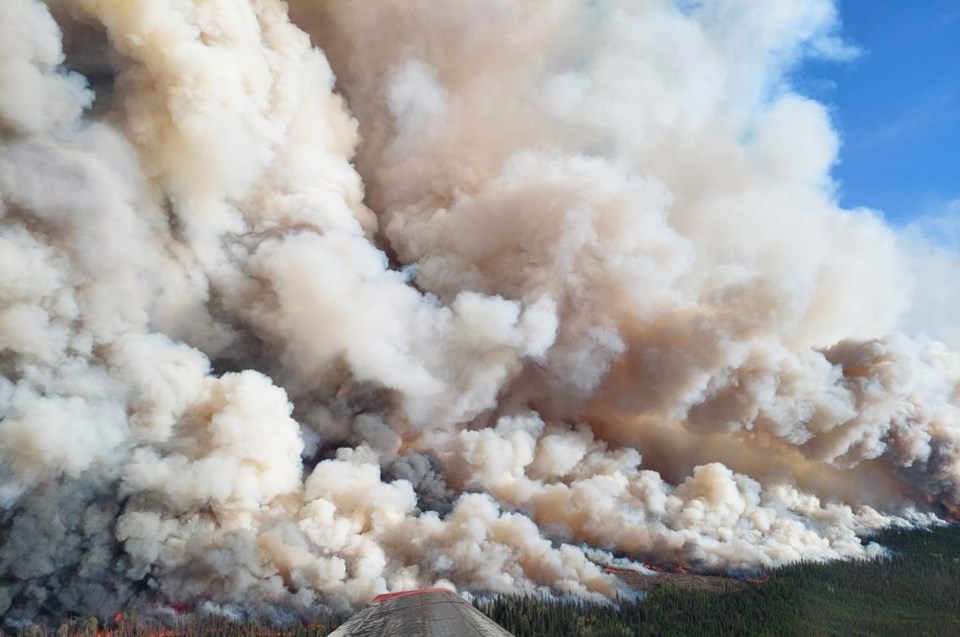VANCOUVER — Wildfire crews in northeastern British Columbia are keeping an anxious lookout after a series of weekend lightning storms rolled through the parched region.
The BC Wildfire Service is reporting 102 active wildfires in the province, most of them in the Prince George fire centre where the vast Donnie Creek blaze has now charred more than 5,745 square kilometres of boreal forest since it was sparked by lightning on May 12.
The service confirms weekend storms peppered the region with about 4,000 lightning strikes on Sunday and as many as 10,000 since last Friday.
Recent rain has dialed back the fire danger for parts of northeastern B.C., including around Fort Nelson and the Donnie Creek blaze, where the wildfire service ranked the risk at low to moderate on Monday, but Environment Canada shows above average temperatures and more lightning are forecast for the first half of the week.
A B.C. government statement on Friday urged water conservation and warned that much of the province will experience drought conditions this summer.
Fort Nelson and the east Peace region are among the areas ranked by the province at Drought Level 4, the second highest rating on the six-level scale, meaning very dry conditions are likely to harm ecosystems or affect things such as community safety or employment.
The wildfire service says much of north-central and northwestern B.C., as well as Vancouver Island, the central coast and parts of Haida Gwaii are ranked at a high to extreme risk of fire.
The service says campfires remain banned on Vancouver Island, most Gulf Islands and in the Nadina fire zone in central B.C., which includes Tweedsmuir Park and a stretch of Highway 16 from Burns Lake almost to Smithers.
It says small campfires are still allowed in the Cariboo, Coastal and Southeast fire centres where wet weather earlier this month has dipped the wildfire danger rating to no higher than moderate.
This report by The Canadian Press was first published June 26, 2023.
The Canadian Press




